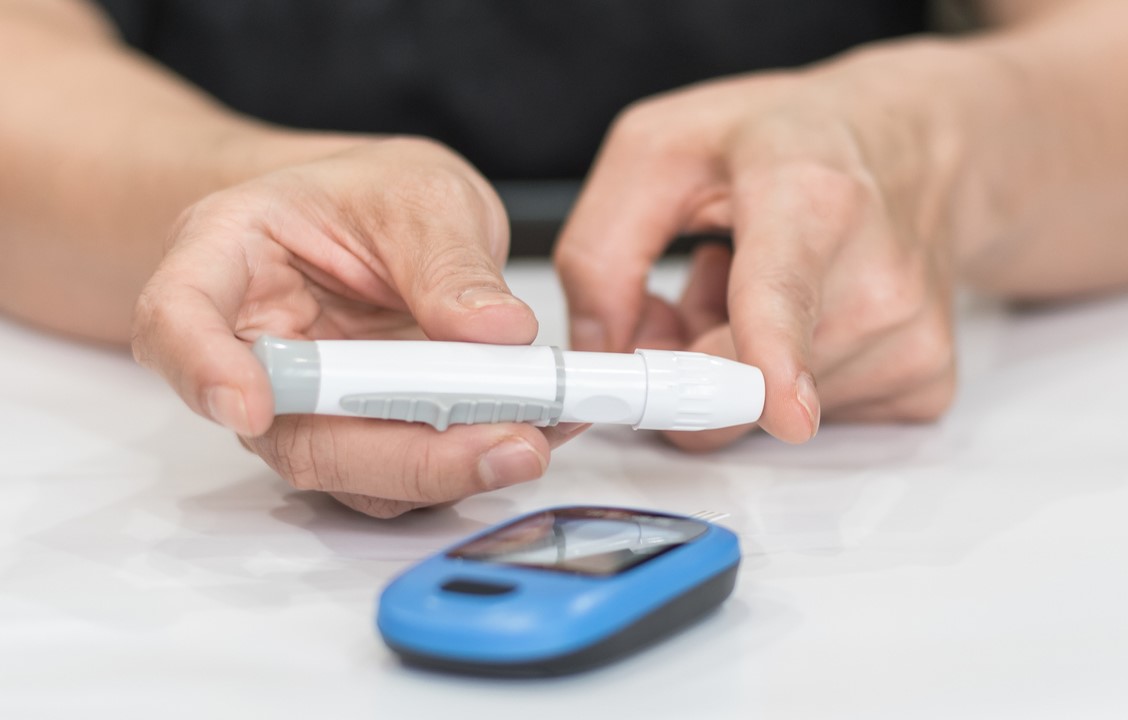Checking your blood sugar daily may not help you manage your type 2 diabetes.
If you have type 2 diabetes, it’s important to keep the amount of glucose, or sugar, in your blood at a healthy level. Many patients check their blood sugar at home each day.
Patients place a drop of blood from their fingertip onto a test strip; then they insert the strip into a home glucose meter. This test measures your blood sugar level at that moment.
People who use insulin check their blood sugar often so that they know how much insulin to take. But if you don’t use insulin, recent research shows that daily blood sugar testing may not help you manage your type 2 diabetes.
Findings
A recent PCORI-funded study found that people with type 2 diabetes who don’t use insulin did not benefit from daily self-testing. Study participants who checked their blood sugar each day for a year had the same A1c and quality of life as people who didn’t test daily. Even participants who tested daily and received text messages about their results had about the same A1c and quality of life as those who didn’t test daily.
Important: People with type 2 diabetes should get an A1c test every few months. An A1c test measures average blood sugar levels over the past three months. For this test, a lab or clinic collects a blood sample and sends the results to you and your doctor. Recent research doesn’t recommend any change to A1c testing. Your doctor can tell you when to schedule your next A1c test.
What Do the Findings Mean for Me?
If you don’t need to take insulin, you and your doctor may want to talk about whether daily self-testing is right for you. Your doctor may recommend that you check your blood sugar less often.
When deciding how often to check your blood sugar, your doctor will look at your overall health, your latest A1c score, and your lifestyle. Your doctor will also look at your blood sugar control over many months or years.
It’s important for people with type 1 diabetes, people with type 2 diabetes who take insulin, and people with a recent type 2 diabetes diagnosis to check their blood sugar each day.
How Do These Findings Fit with Other Research?
Older studies also found that daily testing didn’t improve blood sugar control in people with type 2 diabetes whose blood sugar levels were already well controlled. Although some studies found that blood sugar levels in these patients improved slightly, the improvements were too small to make a difference in patients’ health.
This PCORI-funded study is different from earlier studies that looked at this topic. For example, the study included more people with type 2 diabetes. It also looked at patients’ blood sugar levels for a longer time than earlier studies.
What Questions Should I Ask My Doctor?
Before making any changes to your routine for managing your diabetes, you should talk to your doctor. Here are some questions you may want to ask.
- Based on my blood sugar levels and diabetes management plan, do I need to check my blood sugar daily?
- If I don’t need to check it each day, how often should I test my blood sugar?
- What situations would make me need to check my blood sugar more often? For example, if I changed my diet or exercise routine, would I need to test daily?
- Am I up to date in my A1c testing?
- What else can I do to keep my blood sugar under control?
About the Study
The research team looked at 450 people with type 2 diabetes. The patients were recruited from 15 primary care clinics in North Carolina. Patients were ages 30 and older. Their A1c levels were between 6.5 percent and 9.5 percent. The patients did not take insulin to control their blood sugar.
Sources
© 2011–2020 Patient-Centered Outcomes Research Institute. “Does Daily Self-Monitoring of Blood Sugar Levels Improve Blood Sugar Control and Quality of Life for Patients with Type 2 Diabetes Who Do Not Use Insulin? — The Monitor Trial.” https://www.pcori.org/Donahue018
Young LA, Buse JB, Weaver MA, et al. Glucose Self-Monitoring in Non-Insulin-Treated Patients with Type 2 Diabetes in Primary Care Settings: A Randomized Trial. JAMA Internal Medicine. 2017;177(7):920-9.
The information in this publication is not intended to be a substitute for professional medical advice. This update summarizes findings from a PCORI research award to the University of North Carolina at Chapel Hill.
View the study on PCORI’s website:
| Homepage | https://pcori.me/3v2M5Pt |
| Patient HTML | https://pcori.me/3vC8fqO |
| Patient PDF | https://pcori.me/3jW7uUh |




